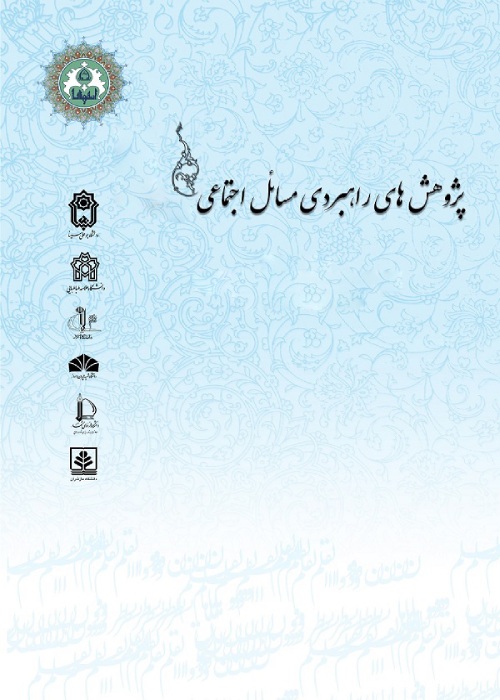Investigating Generational Differences in the Attitudes towards Divorce in Iran Using Multi-Level Modeling
Despite the continuing roles of cultural and religious values in family attitudes and behaviors, it seems that some transformations in the family system have happened in Iranian social beliefs. Divorce is one of such changes. The annual growth of divorce rate was about 6.2% during 1996-2016. The increase in divorce rates has largely eliminated its social stigma. Research has shown that a key determinant in this event is the attitude towards divorce. It should be noted that attitudes can vary between different generations. This variation in societies like Iran, which is experiencing a transition, is so crucial since its generational differences have been the source of widespread changes in family values. This paper aimed to examine such differences between Iranian generations and their changes over the last two decades. Margaret Mead's theory was applied to classify the generations. She did it based on differences in the economic and social conditions of a society. In the present study, three generations were distinguished to have undergone the influence of the Islamic Revolution in 1979: first, the generation before the revolution, who was born in the 1940s and 1950s; second, the people born in the 1960s and 1970s, who were called the generation of war and revolution; and finally, the generation born in the 1981s and 1991s.
This study was based on a secondary analysis that used the 4th, 5th, and 7th waves of the World Values Survey (WVS) in Iran, in the years of 2000, 2005, and 2020, the sample sizes of which were 2535, 2667, and 1499 people, respectively. Thus, the information of 67101 people was analyzed. The statistical population comprised all the Iranians, who were 15 years old and older. A multistage cluster random sampling method was utilized for selecting the people. In addition to using a descriptive analysis, multilevel regression was applied for multivariate data analysis.
The results revealed that there were significant differences in the attitudes of the different studied generations towards divorce. The younger generations at all ages had a more positive attitude towards divorce. The third generation had a higher level of education than their predecessors and had more access to mass media, especially social media and hence, they were more connected to other cultures. It could reasonably lead to getting impressed by the issues like divorce or other emerging family behaviors among them. The findings also indicated that the attitudes of the studied generations had always changed in favor of divorce over time. This was true about all the generations. The bivariate analyses showed that urban dwellers had a more positive attitude towards divorce than those living in rural areas. The traditional atmosphere of the villages and the divorce stigma in rural communities and high frequency of divorce and individual anonymity in urban areas could be the most important reasons for these differences. Men had a more negative attitude towards divorce than women. Also, the never-married people had a more positive attitude than the married ones. The relation between education and divorce attitudes was also significant. People with higher education had a more positive attitude. Education spontaneously changes people's behaviors, attitudes, and beliefs and higher education usually means having modern views on the family. Unexpectedly, the attitudes towards divorce did not differ significantly between the ethnic groups.The results of the multilevel models demonstrated that although some differences in the attitudes towards divorce were rooted in individual characteristics, such characteristics of the generations as university education, secular values, gender equality, and modern family values had affected their attitudes towards divorce.Finally, a clear gap was witnessed between today’s generations although their attitudes towards divorce had been slightly close in the past. Especially, the youngest cohort had segregated itself from older generations. The growing positive attitude towards divorce was expected to persist due to the continuation of the cohort replacement process, acceleration in urbanization, cultural globalization, education expansion, development of new communication and information technologies, mass media, and social networks.
- حق عضویت دریافتی صرف حمایت از نشریات عضو و نگهداری، تکمیل و توسعه مگیران میشود.
- پرداخت حق اشتراک و دانلود مقالات اجازه بازنشر آن در سایر رسانههای چاپی و دیجیتال را به کاربر نمیدهد.




